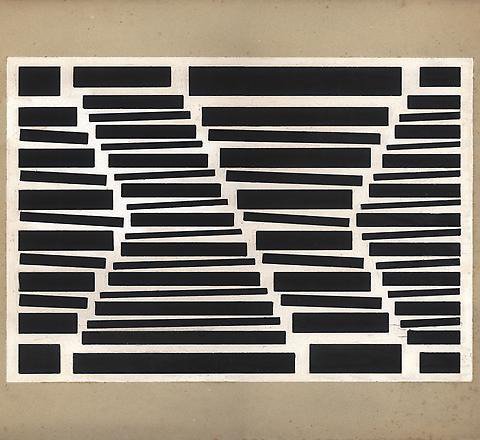Playing with Form
dal 31/10/2011 al 20/12/2011
Segnalato da
Geraldo de Barros
Hercules Barsotti
Aluisio Carvao
Willys de Castro
Lygia Clark
Raymundo Colares
Judith Lauand
Maria Leontina
Almir Mavigni
Helio Oiticica
Lygia Pape
Mira Schendel
Ivan Serpa
Olivier Berggruen
31/10/2011
Playing with Form
Dickinson Roundell Inc., New York
Concrete Art from Brazil, a group show displaying a comprehensive survey of Brazilian paintings and sculptures from the late 1950s through the early 1960s, curated by Olivier Berggrue.

Dickinson New York is pleased to present Playing With Form: Concrete Art from Brazil, a comprehensive survey of Brazilian paintings and sculptures from the late 1950s through the early 1960s, curated by Olivier Berggruen. The exhibition will be on view from November 1st through December 21st 2011 and will feature seminal works by artists including Geraldo de Barros, Hercules Barsotti, Aluisio Carvao, Willys de Castro, Lygia Clark, Raymundo Colares, Judith Lauand, Maria Leontina, Almir Mavigni, Helio Oiticica, Lygia Pape, Mira Schendel and Ivan Serpa; the majority of which are on loan from prestigious private collections and institutions. The exhibition marks the first time a gallery in New York has shown a comprehensive survey of Brazilian art from this period, and is Dickinson's first foray into the field of Latin American Art.
Playing With Form: Concrete Art from Brazil emphasizes the articulation between two of Brazil's most enriched art movements, the Concrete and the Neo-Concrete. "The Basis of Concrete Art" manifesto from 1930 states that painting should be constructed without the association of figures, nature or emotion, and thereby consist of planes and colors. In response to the European influence of Concrete Art in Brazil, a group of artists, including Clark and Pape, published the Neo-Concrete manifesto in 1959, which called for art to become more expressive and engaging. Thus Concrete art shifted to Neo-Concrete, which celebrated sensuality, color, and poetic feeling in the form of abstract shapes. This exhibition illustrates the development of Neo-Concrete artists who reexamined the geometric, purist aesthetic of Concrete Art by infusing rational forms with dynamism and a sensorial aesthetic. According to curator Olivier Berggruen, "the European sensibility and geometric language which these artists pursued in the Fifties, develops and sheds its rationalistic and mechanistic character, creating a style very much its own."
Highlights of the exhibition include several works from Helio Oiticica's formative Metaesquema series, whose title is derived from the Portuguese words "beyond vision and structure." Metaesquema features monochromatic gouaches with rhythmic geometric shapes by the artist, who was a leading figure in Neo-Concrete, and whose work has received wide international acclaim, including a recent retrospective exhibition at the Museum of Fine Arts, Houston and Tate Modern, London. The exhibition will also include several folding aluminum sculptures from Lygia Clark's seminal Bicho series. A pioneer of participatory art, Clark requested that viewers touch and rearrange her malleable sculptures, thereby eliminating the boundary between spectator and art. Lygia Pape, also noted for her experimentation, will also be represented. The exhibition will feature three painted wooden reliefs from her series Day & Night in which she uses three-dimensional sculptural elements to activate her painting.
The exhibiting artworks are a testament to Brazil's cultural flowering and confirm the importance of Brazilian Arte Concreta in the development of twentieth century art history. "We are delighted to have two external scholars working on the show—Olivier Berggruen as curator, and Yve-Alain Bois as a contributing writer for the catalogue. Both are passionate followers of Brazilian art of this period," said Dickinson President Hugo Nathan. "We welcome their insightful collaboration with the gallery on its first exhibition of Latin American art."
Image: Helio Oiticica Metaesquema 198
For more information:
Prentice Art Communications, (212) 228-4048
Bettina@PrenticeArt.com / Shannon@PrenticeArt.com
Dickinson Roundell Inc.
19 East 66th Street - New York
Monday–Friday, 9:30 a.m.–5:30 p.m.
Free admission



